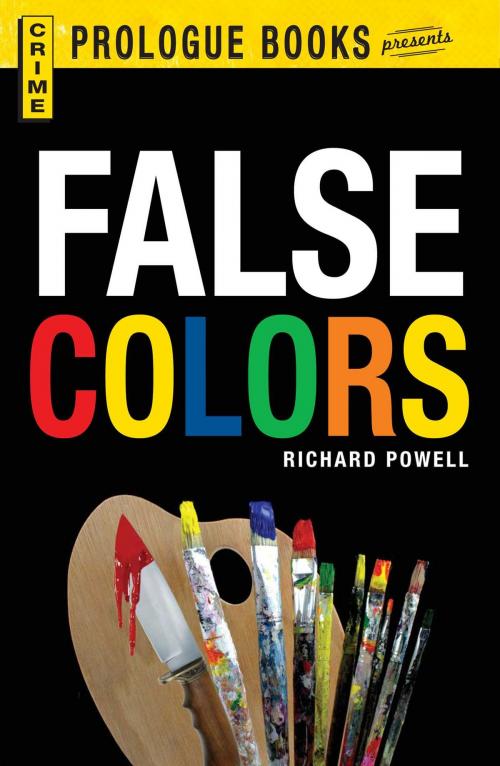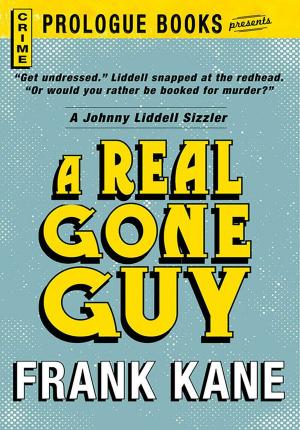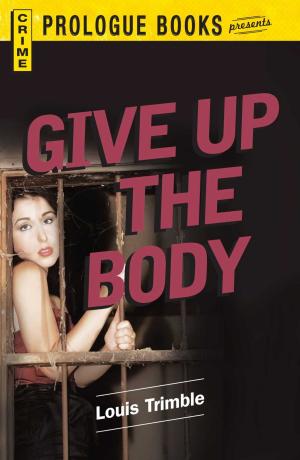| Author: | Richard Powell | ISBN: | 9781440558498 |
| Publisher: | Adams Media | Publication: | September 1, 2012 |
| Imprint: | Prologue Books | Language: | English |
| Author: | Richard Powell |
| ISBN: | 9781440558498 |
| Publisher: | Adams Media |
| Publication: | September 1, 2012 |
| Imprint: | Prologue Books |
| Language: | English |
What you’re starting to read now is called a jacket blurb. Its purpose is to tell you enough about the book to steam you up into reading it. Jacket blurbs are usually written by publishers, and sometimes they fib a little about how wonderful the book is.
But this time the publisher asked me, the author, to write the blurb. I suppose that, after publishing nine other Powell novels, Simon and Schuster feel I ought to do my own exaggerating for a change. So let’s get that over with: “This is a magnificent book and you’ll love every word of it.” Now we can relax.
This is a mystery novel. The hero is a young Philadelphia art dealer who gets mixed up in dirty work in the field of art collecting. Maybe I shouldn’t call him a hero. If he ever did have the usual mystery story hero’s nerves of steel and muscles of iron, they certainly got badly rusted. He’s slow and cautious. In fact the guy admits that, in the great race of life, he’s just along for the walk. He gets scared in tough spots. I felt sorry about shoving him into so much trouble, even though I did give him a jet-propelled blonde heroine as a sort of workmen’s compensation for his injuries. Still and all, there are easier ways of winning a pretty blonde than by battling strong-arm guys, gunmen and a murderer, and I think my hero would have preferred them. I know I would.
This story took a lot of research. I read stacks of art books, and talked to artists and dealers. I prowled through museums peering at famous paintings through a magnifying glass. My new knowledge even impresses my artist friends, and it’s mighty hard for a writer to impress an artist. To most artists, a writer is a vandal who takes white space that could be used for pictures and clutters it up with words.
I’ve tried to get some of the flavor of Philadelphia into the book. That’s an elusive thing to pin down in words, but here’s an example of what Philadelphia is like. In most cities, if you owned a valuable old Chippendale chair, you would call everyone’s attention to your prize. In Philadelphia, you would sit in it.
I hope you like the book. Don’t try to please me by saying you stayed up after midnight finishing it, though. It never seems fair to me that people can read in just a few hours something that took me a year to write.
--Richard Powell
What you’re starting to read now is called a jacket blurb. Its purpose is to tell you enough about the book to steam you up into reading it. Jacket blurbs are usually written by publishers, and sometimes they fib a little about how wonderful the book is.
But this time the publisher asked me, the author, to write the blurb. I suppose that, after publishing nine other Powell novels, Simon and Schuster feel I ought to do my own exaggerating for a change. So let’s get that over with: “This is a magnificent book and you’ll love every word of it.” Now we can relax.
This is a mystery novel. The hero is a young Philadelphia art dealer who gets mixed up in dirty work in the field of art collecting. Maybe I shouldn’t call him a hero. If he ever did have the usual mystery story hero’s nerves of steel and muscles of iron, they certainly got badly rusted. He’s slow and cautious. In fact the guy admits that, in the great race of life, he’s just along for the walk. He gets scared in tough spots. I felt sorry about shoving him into so much trouble, even though I did give him a jet-propelled blonde heroine as a sort of workmen’s compensation for his injuries. Still and all, there are easier ways of winning a pretty blonde than by battling strong-arm guys, gunmen and a murderer, and I think my hero would have preferred them. I know I would.
This story took a lot of research. I read stacks of art books, and talked to artists and dealers. I prowled through museums peering at famous paintings through a magnifying glass. My new knowledge even impresses my artist friends, and it’s mighty hard for a writer to impress an artist. To most artists, a writer is a vandal who takes white space that could be used for pictures and clutters it up with words.
I’ve tried to get some of the flavor of Philadelphia into the book. That’s an elusive thing to pin down in words, but here’s an example of what Philadelphia is like. In most cities, if you owned a valuable old Chippendale chair, you would call everyone’s attention to your prize. In Philadelphia, you would sit in it.
I hope you like the book. Don’t try to please me by saying you stayed up after midnight finishing it, though. It never seems fair to me that people can read in just a few hours something that took me a year to write.
--Richard Powell















